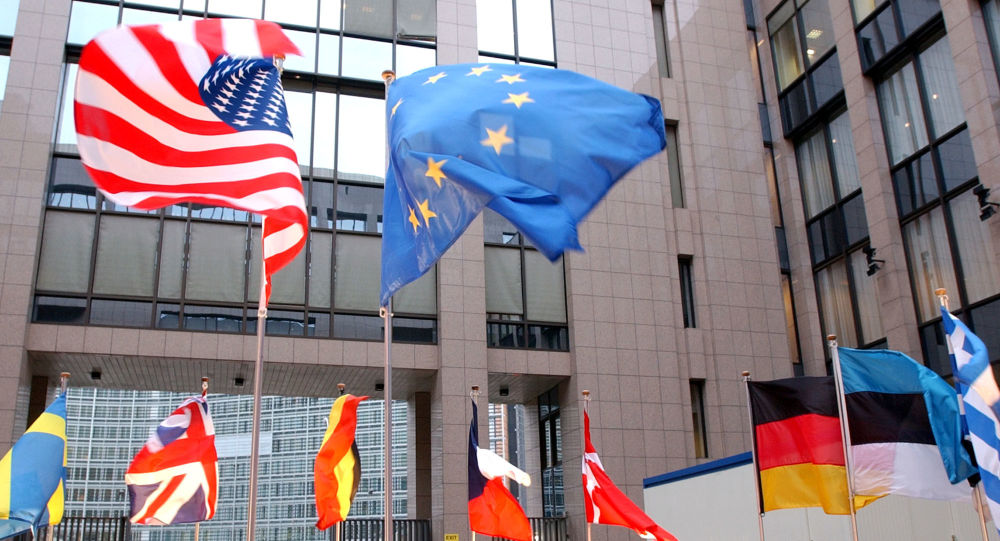
 With Washington still mulling tightening the anti-Russian sanctions, the EU is poised and ready to retaliate against this possible move.
With Washington still mulling tightening the anti-Russian sanctions, the EU is poised and ready to retaliate against this possible move.
"He called me from Air Force One and he basically said to me, 'Hey, you know, maybe they did do it, maybe they didn't do it'," Scaramucci told CNN, commenting on a journalist's remarks that everyone in the US believes in Russia's alleged interference in the US presidential elections.
Washington Wants to 'De-Escalate Things'
Scaramucci also said that if Russia actually hacked the server of the US Democratic Party's National Committee and the correspondences of Hillary Clinton's campaignheadquarters, no one would have ever seen any evidence of these actions.
"Somebody said to me yesterday, I won't tell you who, that if the Russians actually hack this situation and spill out those emails, you would never have seen it. You would have never had any evidence of them," he said.
Referring to the possible new anti-Russian sanctions, Scaramucci said that President Trump "hasn't made the decision yet to sign that bill one way or the other."
In an interview with Fox News last week, Scaramucci signaled the White House's readiness to settle the situation around Russia allegedly meddling in the US elections.
"We certainly want to de-escalate things. I think the Russian situation is overblown," he pointed out.
European Request
The settlement of the situation around Russian-American relations is also expected in Europe, where many are dissatisfied with the prospect of Washington introducing the new anti-Russian sanctions.
President of the European Commission Jean-Claude Juncker, for his part, called on the commission to urgently discuss the response of the European Union to possible new anti-Russian sanctions that could be introduced by the United States, the Financial Timesreported.
According to a note prepared for Wednesday's meeting of the commission, obtained by the newspaper, Juncker urged Brussels to be ready to "act within days" if Washington adopts sanctions against Russia "without EU concerns being taken into account."
The possible measures for the European Union to undertake listed in the note include seeking "a public or written reassurance" from US President Donald Trump that the new sanctions, if imposed, will not be targeting EU interests.
Another option stipulates using European law to prevent the new sanctions from being "recognized or enforceable" in the European Union, as well as to prepare "WTO-compliant retaliatory measures."
The possible introduction of the new unilateral US sanctions against Russia has also alarmed a number of other European officials who fear that the new restrictive measures will have "wide unforeseen consequences" for the energy interests of the European Union and its economy as such.
"Sanctions are most effective when they are coordinated. At the moment, our sanctions regimes are coordinated, due to which their effectiveness is high, and we have the opportunity to avoid surprises, cope with the potential negative effect on our own economy objects and collectively make balanced decisions. Unilateral measures will destroy all this," an EU statement said.
On Saturday, the US congress released the text of the bill targeting Russia, Iran and North Korea, which both chambers of Congress have agreed upon. The voting in the House of Representatives will reportedly take place on Tuesday.The proposed bill views Russia's Nord Stream 2 gas pipeline project as a threat to the energy security of Ukraine and the European Union, proposing to provide US allies with financial aid to counter alleged Russian influence and possible cyberattacks by Russian hackers.
sputniknews.com



_jpg/250px-ElbeDay1945_(NARA_ww2-121).jpg)





